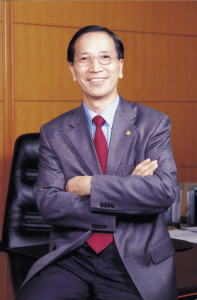Gu Jiadong started working at FESCO in 1982, rising to become CEO in 1993, a position that he held for 15 years. He is now the Honorary Chairman of Shanghai Human Resources Consulting Association (SHRCA), Vice Chairman of the Shanghai Service Federation and Senior Researcher of Peking University’s HR Centre. He also holds an EMBA from Shanghai CEIBS. Prior to the European Chamber’s HR Conference, Dan Zhu, Chair of the Shanghai HR Working Group, asked this industry veteran to share his insights into what he thinks will be the future trends in the HR industry beyond 2012.
Dan Zhu (DZ): Most of our members will be familiar with FESCO’s employee outsourcing services, can you tell us a bit more about the corporation and your role there?
Gu Jiadong(GJD): I have been in the HR industry for my entire career. Thanks to FESCO, I have served more than 200 MNCs from fortune 500 companies, many of them with European origins. As one of the founders and managers of FESCO, we relied on government policy rather than investment. By promoting service delivery, we became the largest player in China with an annual income of RMB 38 billion, with 15 branch offices in China serving 20,000 companies. I was also the key negotiator for the FESCO Adecco Joint Venture [announced in 2010, began operations from 1st January 2011]. For the negotiations, I visited Belgium and Switzerland seven times. I’m sure many people know how successful FESCO Adecco has been since its inception.
DZ: 2012 has been a tough year. Many of our member companies are experiencing difficult times either with hiring freezes, stagnating growth, or downsizing. What is the situation in the HR service industry as a whole?
GJD: It is a difficult time for everyone. Most of the search firms stopped receiving contracts from November due to a wide spread hiring freeze and downsizing. Outsourcing has also been affected due to companies’ cutting down their manufacturing capacity and shifting to inland provinces. Following years of growth within the industry, most players are now offering similar services with neither clear differentiation in service standard nor in product innovation. Now is one of the most difficult times to be recruiting workers, clerks, professionals, managers and executives. Also, government policies are now under scrutiny from people within the industry, who feel that their needs are not being adequately met.
DZ: In your view, with changes to the economic growth model and the slow recovery around the world, what will be the future trends in the HR service industry?
GJD: There are nine emerging trends in the industry: 1) With new HR outsourcing regulations, the focus is on building better relationships between the employer, employee and HR service providers; 2) There will be negotiation between all three parties for service delivery. Employees’ salary will be based on their tenure and the employers’ overall business performance; 3) We will see new growth in total solutions for employee relationship management and outsourcing of compensation and benefits on top of the existing HRO services; 4) Employees’ social benefits will rise. There will be a growing demand for vocational training and graduates from vocational schools; 5) Outsourcing contracts will be more standardised, with an emphasis on greater clarity when detailing each party’s risks & responsibilities; 6) There will be more demand in flexible workforce solutions due to head count control. Such solutions can be project based; 7) There will also be talent leasing, brokering or agent contracts for certain talents; 8) In order to avoid unfair competition, Industry Associations will publish a standard, minimum charge rate based on industry and job grades; 9) Branding, quality and professionalism will be the driving force in value-added services.
DZ: How will CEOs need to change their HR mindset?
GJD: There is something known as the lime scale effect in HR. If you use the kettle for a long time, eventually there will be a build up of lime scale on the inside. Today in HR we are facing constant changes in areas such as policy, knowledge, information, team synergy and people’s mindset. These changes build up like lime scale and cause blockages and a lack of efficiency. HR has evolved from its traditional administrative role into a strategic partner, which means it is not only a cost centre but also a profit centre with an enabling effect. With such changes, HR will need to develop an overall understanding of macro and industry trends, a mastery of latest technology and methodology, and be able to work out an efficient system to improve organisational productivity.
By Dan ZHU



Recent Comments